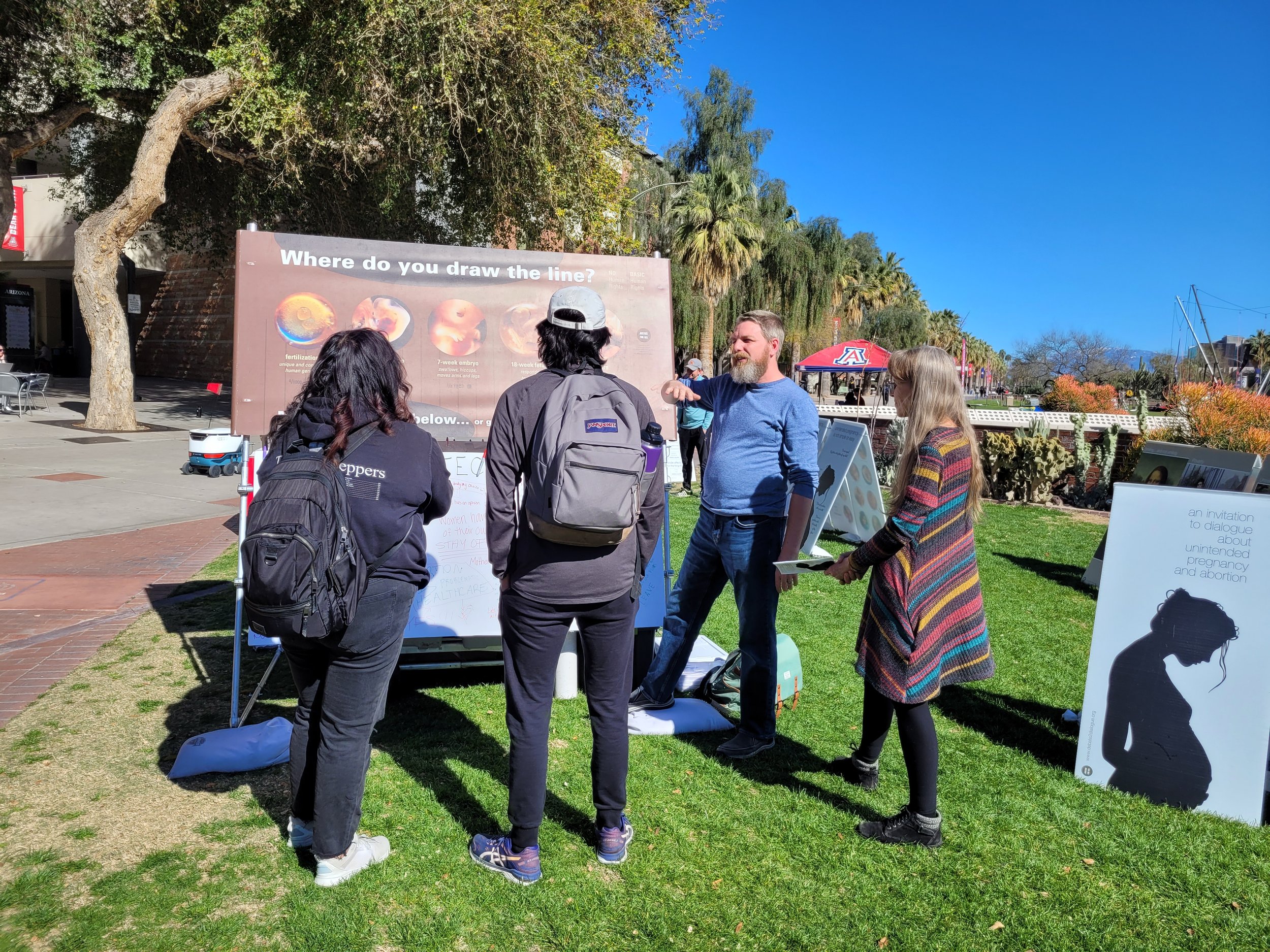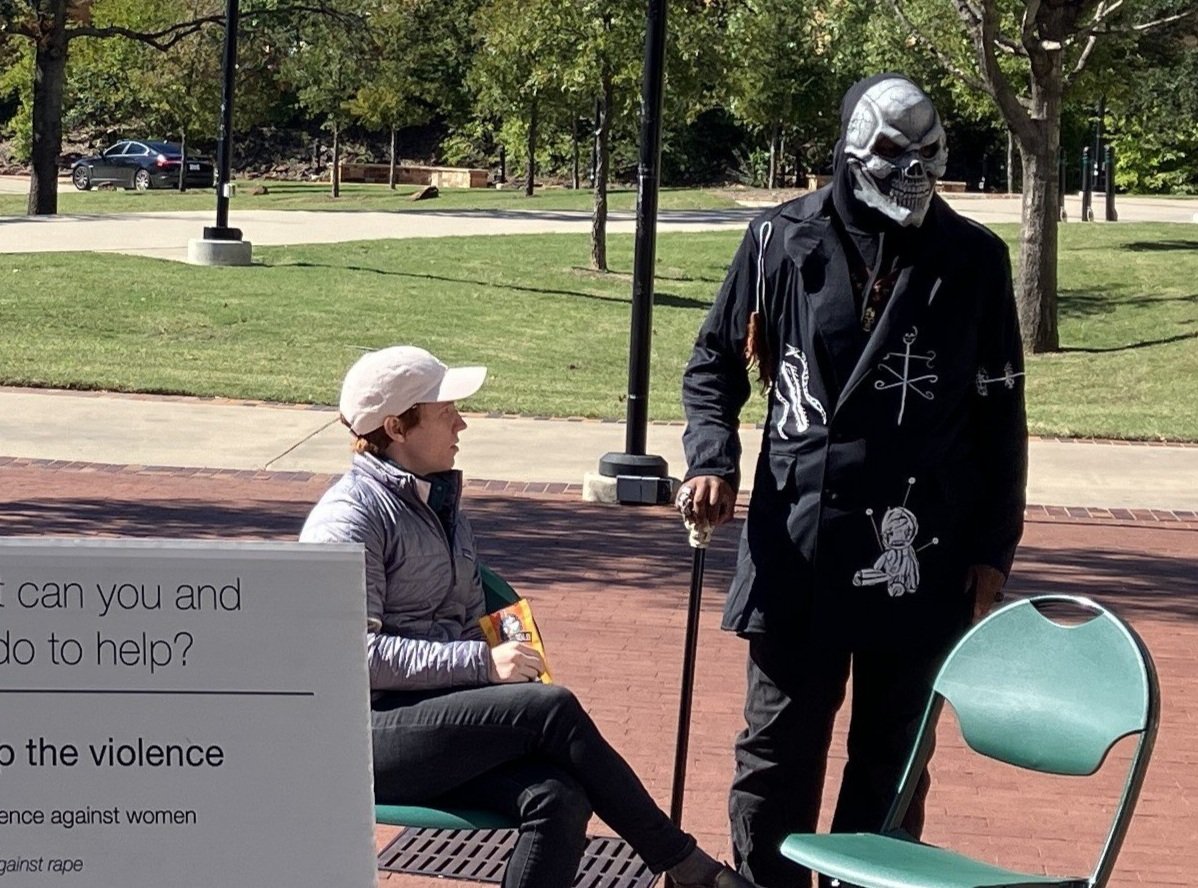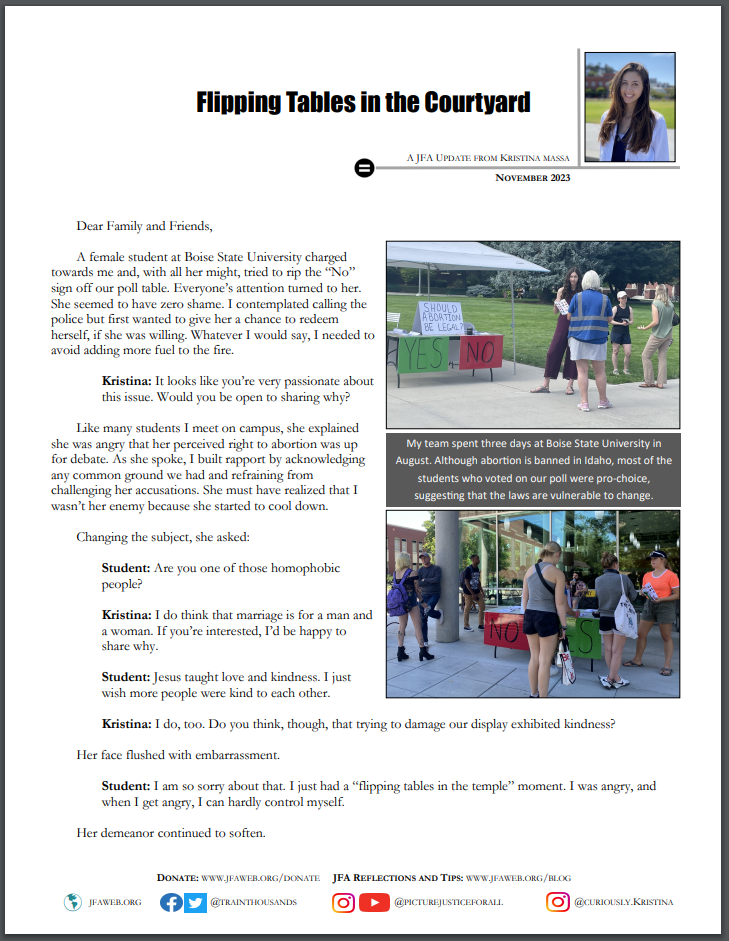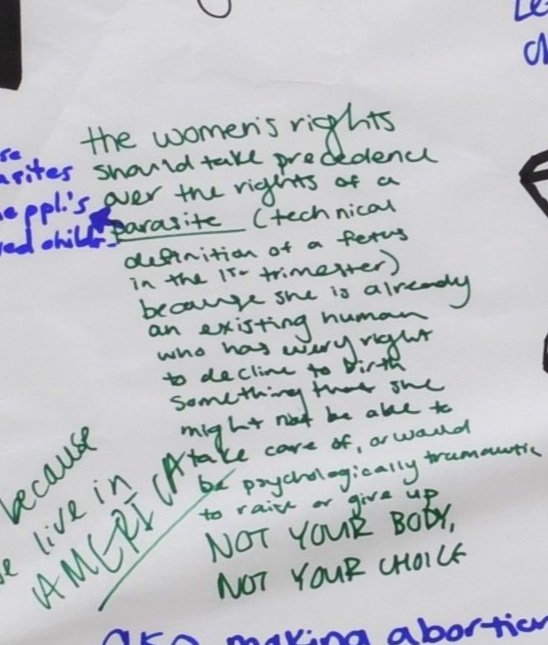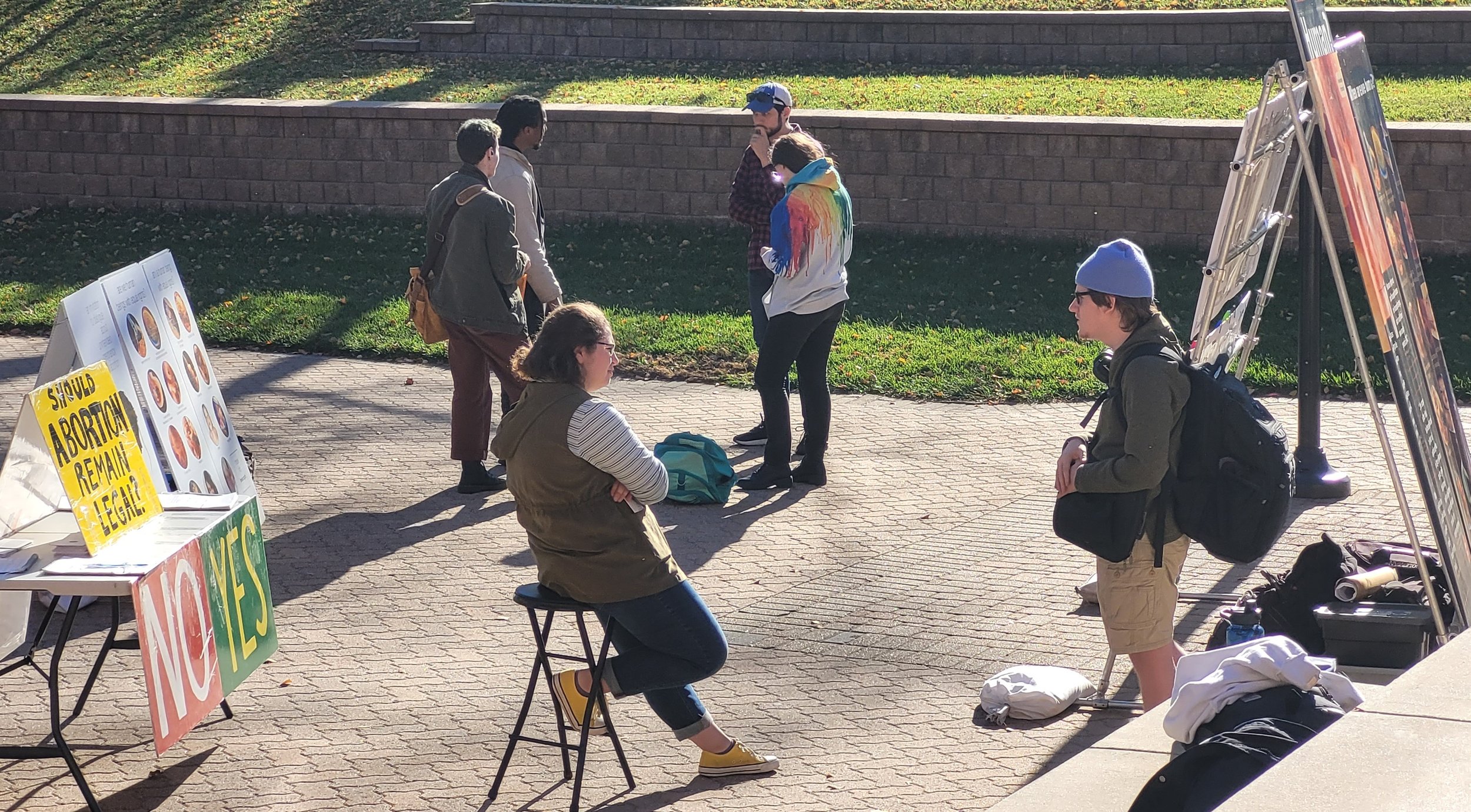I talked to a thoughtful high school student who told me I opened his mind.
I get asked many difficult questions in my conversations with students at universities. One question I get asked in nearly every conversation is, “What about abortion in the case of rape?” In May, I was at UCLA on Bruin Walk, and a woman I’ll call “Taylor” asked me if I thought abortion should be legal in this difficult circumstance, especially if the victim is really young.
I said something like:
Given the recent unrest at UCLA, I wasn’t sure how the outreach event would go, but we had two productive days of civil conversations!
I have a hard time emotionally with my own answer to this question. My heart doesn’t want to tell a rape victim that she can’t do something that she feels will help her heal. If she wants something, I just want to say “Yes” to her. I want her to get all the care, help, and counseling she needs. I think we can agree what happened to her was wrong and evil. She should be separated from the abuser and protected from any future abuse.
A way that I help myself process this question is by imagining a twelve-year-old girl who gets pregnant from rape and decides to continue the pregnancy. Then after she gives birth, she’s now thirteen and thinks to herself, “I don’t want to do this anymore. I’m only thirteen and can’t care for a child.” Would we allow her to kill her child? Clearly the answer is no.
I bring this up because I believe a child in the womb is equally human to the newborn in this scenario. I want to come up with non-violent solutions here. I am against rape because it’s a violent act against an innocent person, and that’s precisely why I’m also against abortion. It is also a violent act against another human being.
Taylor then shared with me that she was a victim of rape. She was assaulted when she was very young, became pregnant from the rape, and then had a miscarriage. She told me she liked how I had answered the question and that it made sense. She also said she appreciated that I didn’t bring up the 1% figure that many pro-life people cite. I asked her if bringing up that percentage felt dismissive to her as a rape victim. She said that it does.
A common response to abortion in the case of rape is to highlight that only around 1% of abortions are due to rape. While this statistic is true based on the research available (see www.jfaweb.org/facts), I generally don’t bring this up. With about a million abortions happening every year, an estimated 10,000 women have abortions every year because they were raped. That’s a lot of women dealing with horrific trauma.
It’s not that I never share this statistic. It is helpful to know, and some people ask me about it. It’s important, though, that we don’t rush into sharing this statistic and neglect showing concern and compassion for victims of rape. If we aren’t careful here, we risk sounding callous and indifferent to victims of rape.
During our conversation, Taylor told me I was the first pro-life person to have a calm conversation with her. That was disheartening for me to hear, but I was also thankful God gave me the opportunity to give her a good experience discussing the issue of abortion. We went on to talk about some other traumatic experiences in her life, her religious upbringing, the Bible, and some of her beliefs about God.
I face two general challenges in every conversation I have with students. One is giving intellectually satisfying answers to all the questions, statements, and arguments people bring up to defend abortion. The other challenge is being emotionally sensitive to the person and to the difficult things each person has been through. It’s the challenge of knowing how to answer each person (Colossians 4:6). It’s a conversation rooted in love for other people and a deep love for and commitment to the truth. It’s the kind of conversation I get to have all over the country because of your support. Thank you for standing with me.









